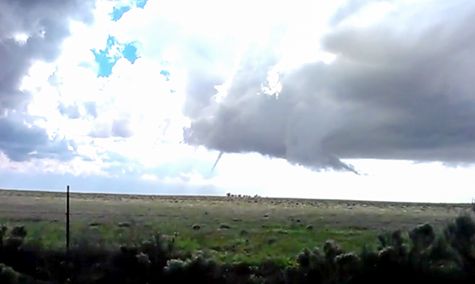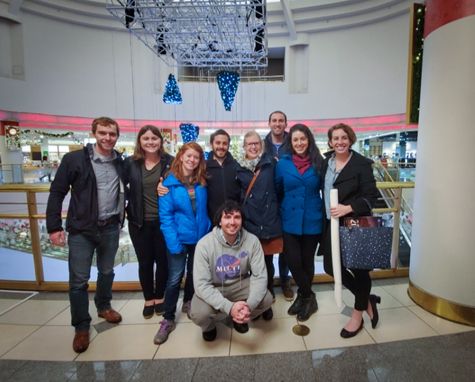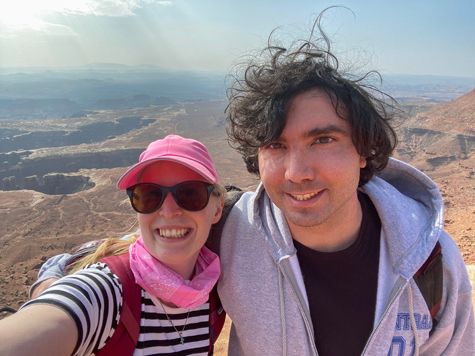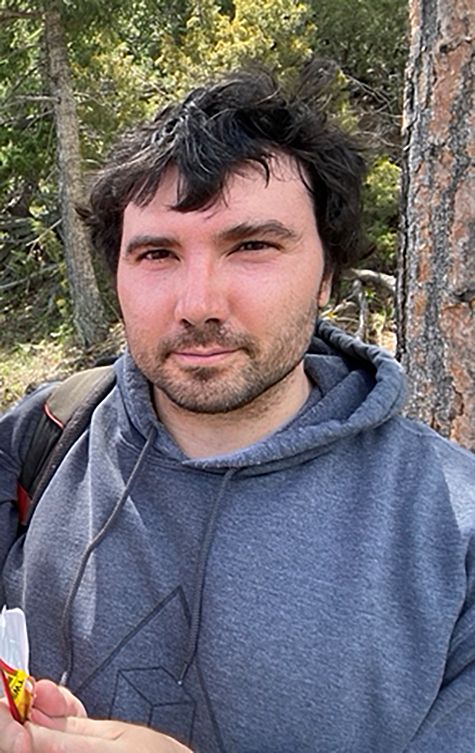Early Career Scientist Spotlight
Dr. Joshua Pettit (he/him/his)
Atmospheric Scientist
Space Weather Laboratory (674)
What inspired you to pursue a career in atmospheric physics?
I had no idea what I wanted to do until I was about 25. I’d spent 10 years working as a cook in various restaurant establishments and wanted to try something new. I had a close friend growing up that I spent a lot of time with hanging out in my basement. He was an amateur astronomer and would always get into conversations about astrophysics and planetary science. While some of my friends would get sick of what they referred to as “Science Class”, I was always fascinated by the topics. I learned a lot about physics and chemistry through his tutoring and eventually, when I went back to college, his conversations inspired me to go into science. One thing led to another, and I found myself captivated with the idea of how the upper atmosphere influences tropospheric weather systems. After doing my undergraduate honor’s thesis on this topic, I knew that I wanted to work in the field of space weather and atmospheric coupling.

Credit: Joshua Pettit
What is your research focus?
My current research focus is on how solar radiation and energetic particle precipitation impacts the upper atmosphere. To explore this topic, we are using whole atmosphere and upper atmosphere models to investigate various questions regarding the impacts that charged particles and photons can have on both the chemistry and dynamics of the atmosphere. There are still a lot of unanswered questions regarding the impacts the Sun and magnetosphere have on the upper atmosphere. Further, the changes observed in the upper atmosphere likely have impacts on other layers of the atmosphere, such as the stratosphere and even the weather systems in the troposphere. There is a lot of exciting science happening right now, and I’m glad to be a part of it.
What research accomplishment are you most proud of?
The research accomplishment I’m most proud of is probably publishing my first paper. As a graduate student, there is a lot of uncertainty in one’s ability to become a successful scientist and seeing the acceptance of my first paper helped quash a lot of those fears for me. The first draft you send to your advisor in graduate school almost always gets smashed. I’ve yet to meet a graduate student this didn’t happen to. It can be demoralizing at first, but to see the improvement from that initial draft to a published paper was a cool and rewarding experience.
What early career advice do you have for those looking to do what you do?
Don’t skimp on the mathematics and physics, but certainly don’t skimp on programming. Much of my undergraduate and graduate work was spent on theory, with limited formal programming course work. This leads to a lot of ‘on your own’ learning. While this is typically how most scientists learn how to program, it often leads to inefficient coding practices. I think it would benefit upcoming scientists to take computer science classes on software development practices and more efficient code writing methods if they know they want to pursue a career in research.

Credit: Joshua Pettit
What do you enjoy the most about your job?
The problem solving! One of the best aspects of being a scientist is you must figure out ways to solve difficult and unique problems, which I find very rewarding. In some cases, you may be the first person to approach a certain problem, which makes discovering the answer especially exciting. Being able to find new and out-of-the-box methods to approach science every day makes it a never-ending challenge that keeps my work interesting and fun. Most people must spend 8 hours a day doing something to make a living, and I’m very glad I get to spend my time doing something I enjoy as much as I do.
What is one thing you wish the public understood about your field of work?
The human impact on the atmosphere is much larger than people believe it is. Because the atmosphere just seems so massive, I think some people are unable to see that they can impact the world around them. How can simple aerosol cans change the entire ozone layer? It seems impossible! Once we learned the cause of the ozone hole in the 1980s, we were able to find ways to prevent it from enlarging. When the Montreal protocol was passed banning the use of CFCs, we saw the rebound of the ozone hole in the Southern Hemisphere in just three decades. We were both the cause and the solution of this problem. I hope we can apply the same type of action to things like climate change.

Credit: Joshua Pettit
What do you like to do in your free time?
I enjoy ethical hacking and exploit development. It lends itself quite well to my work because of the amount of programming and problem solving involved in cybersecurity. Most people think I’m strange because my idea of relaxing is challenging my brain. I can’t just sit around and watch television or movies; I need to be doing something that keeps my brain active. When you are hacking, you need to convince the computer to do something it isn’t supposed to do. There is no single answer to this problem so employing out-of-the-box ideas and crazy methods may work equally as well as or even better than a simple or standard way of doing it. The same is true for designing and writing exploits. The goal there is to go undetected and perform the functions you program into it. Both are excellent ways to challenge your mind and find unique ways to solve problems. I find a lot of overlap in my career as a scientist, and I’m often able to approach problems I have in my research using techniques that I wouldn’t have thought about without cybersecurity as a hobby.
Biography
Home Town:
Bolivar, NY
Undergraduate Degree:
B.A. in Earth and Atmospheric Science, Cornell University, Ithaca, NY
Post-graduate Degrees:
PhD in Atmospheric and Oceanic Sciences, University of Colorado, Boulder, CO

